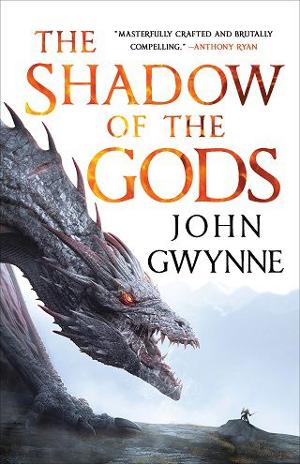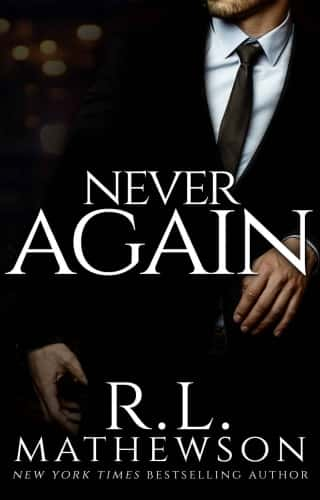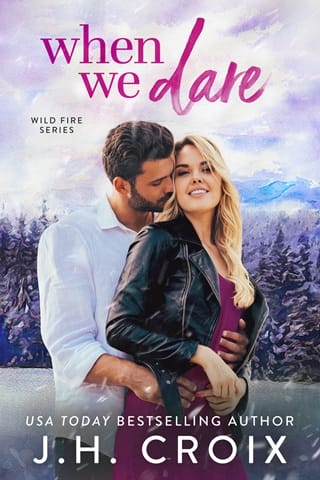Chapter Three: Orka
CHAPTER THREE
ORKA
Orka walked alongside the wagon, the bodies of Asgrim and his wife Idrun laid out upon the wagon’s flatbed. They were covered with a coarse woollen blanket, blood seeping in patches. Orka sniffed and looked around. The trees were thinning about them, the ground levelling as they took the winding path to Fellur, the fishing village on the banks of the fjord.
Breca was leading the wagon, one hand on the lead-rein of a shaggy pony they had found in Asgrim’s stable, his short spear in his other fist, Breca using it like a staff. Orka had given him the task of leading the wagon, something to focus his mind on after the sights at Asgrim’s steading, and she wanted to watch the treeline either side of the path.
There are killers abroad in these hills.
They had searched Asgrim’s steading and found no sign of Harek. Thorkel had found tracks upon the path that wound down the hillside, the ground churned, but the tracks had left the path soon after, heading back into dense woodland. After a heated discussion they had agreed that Thorkel would follow the tracks while Orka and Breca took the bodies down to Fellur. Orka wanted to be the one to take the dangerous path, to track Asgrim’s killers, but they both knew that Thorkel was the better tracker. In the end Thorkel had given her a smile and loped off into the trees, quiet as smoke, for all his bulk. Orka had scowled at his back, her worry manifested as anger. Then she snorted her disapproval and stomped down the path, ordering Breca to lead the pony.
“Will Papa find Harek?” Breca asked, keeping his eyes on the ground in front of them. They had left the snow behind them in the high places, the path turning to puddles and mud where it had been snow and ice.
“Maybe,” Orka grunted. She looked back, up at the cloud-wreathed hills. Thorkel had sworn to her that if he found the boy and Asgrim’s killers he would return to her, not take them on single-handed.
But he is a liar. And it will tear at him to leave the boy in danger. If he still lives.
She was eager to hand the corpses of Asgrim and Idrun over to Fellur’s jarl and go in search of her husband, before he got himself into trouble.
Fellur appeared through the trees, the village a few dozen reed-thatched, wattle-and-daub buildings huddled close, a larger longhouse at its centre. A small stockade surrounded the village, though the timbered wall was rotten in places, and ended a long way short of the dark-sanded beach.
But they are safe enough down here. The vaesen prefer the quiet, dark places, where they can remain hidden.
Orka could see fishing nets hanging on the beach, drying out and waiting for repair. A handful of timber piers that jutted out on to the fjord were mostly empty, only a few fishing boats and byrding coasters moored there.
Goats bleated as the wagon rolled passed them, Orka lengthening the stride of her long legs to draw level with Breca.
A guard stood leaning against one of the gateposts, a man Orka had seen before, though she did not know his name. He nodded to Orka, not bothering to look inside her wagon. Whenever she and Thorkel came to the village it was with a wagon loaded with pelts for trade, so why would this time be any different? Orka nodded to the guard and passed through the gate, feeling a building pressure in her head and chest. She looked up at the gate’s crossbar that ran above her and saw the gleam of bone sunk deep into the timber: the knuckle-bone of a dead god, still beating with a remnant of its power, helping to keep the vaesen out of the village. The pressure in Orka’s head lessened as she moved into a muddy street, away from the gates. Though there were no guards on the gate the village was busy enough, people milling, moving in a stream towards the village’s longhouse. That was where Orka was headed, for that was where she expected to find Sigrún, Jarl of Fellur.
She led Breca past mud-churned pigpens, past the orange glow and hammer-thud of a forge, then past the tavern, the reek of ale, barley and urine thick in the air.
“What is this?” a man said as he emerged from the tavern, blinking at the daylight. Orka knew him: Virk, a fisherman she and Thorkel had traded with many times. He was a big man, broad-faced and straight-talking. He had injured his arm when his fisher boat had been caught out at sea during a storm, and so was letting his two sons ply the seas while he healed. He was blurry-eyed, red veins in his cheeks. Orka took a sniff and curled her lip. By the reek of him he was better off at sea.
“Asgrim and Idrun.” Orka nodded into the wagon.
Virk stared at the bloody stains on the wool blanket covering the two bodies.
“And Harek’s gone,” Breca piped.
“How?” Virk said, others gathering around the cart.
“Not of old age,” Orka muttered and walked on.
Virk followed them, others with him, word spreading.
The wagon rolled into a courtyard before the longhouse, where forty or fifty people were gathered, at least half of the population of the village, others still arriving.
A young man stepped out of the longhouse: Guðvarr, nephew of Jarl Sigrún and one of her drengrs, another three warriors behind him. Guðvarr walked with a swagger and stopped between two wooden pillars at the top of wide steps that led down to the courtyard. A sword was hanging at his hip, his red woollen tunic embroidered with swirling tablet-weave at the neck, cuffs and rim. A silver arm ring wrapped around one arm. His black hair was oiled and pulled back, tied at his neck with leather and a silver wire, the wisps of a first beard on his chin. A ball of moisture glistened at the end of his pointed nose. Orka glanced down at her son. By the light in Breca’s eyes, any man with a sword was enough to impress his saga-filled head.
“What is going on here?” Orka asked Virk, who had come to stand at her shoulder. He was a tall man, but he still had to look up to meet her eyes.
“Guðvarr came down the river on a snekke this morning. Word is that Jarl Sigrún has sent him ahead of her return.”
“Jarl Sigrún isn’t here?”
Virk looked at Orka like she was touched.
“Jarl Sigrún was summoned…” He coughed. “I mean invited, to Queen Helka’s court in Darl. She has been gone more than two months.”
Orka raised an eyebrow and nodded.
“I have news,” Guðvarr called out, the crowd quieting.
He let the silence grow, clearly enjoying his moment before the crowd.
“I am to tell you that Jarl Sigrún will be back with us within a nine-day. She bid me tell you that Queen Helka is just, and good and wise, and that we could do worse than swear our oaths to her. To be under her care would be a benefit to our village.”
“Care!” Virk muttered. “Not so long ago we were all freedmen and women in Fellur, and queens and kings were arseling-jarls who had grown too big for their boots.”
Orka did not disagree with him.
“You mean RULE, not CARE,” Virk shouted, others in the crowd adding their voices.
“Times are changing,” Guðvarr answered, glowering at Virk and the crowd. “Jarl Störr threatens in the west, the vaesen are growing ever bolder, murdering and stealing. We are better off uniting with the strong, and Queen Helka is the strongest.”
More muttering.
“When Jarl Sigrún returns, there will be an Althing, held on the Oath Rock, where all can have their say about these important matters,” Guðvarr called out, gesturing to a rocky island that stood in the fjord, green with moss and dense with bracken and wind-blasted trees.
Voices called out, protesting, asking questions.
“Save your moaning for my aunt and the Althing,” he growled. “That is all.”
Orka took the lead-rein from Breca and clicked the pony on, pulling the wagon through the crowd. People parted for her.
“Drengr Guðvarr,” Orka called out, her voice loud, cutting through the crowd.
Guðvarr paused and turned, looked down at Orka, Breca and the wagon. He wiped the drop of snot growing at the end of his nose.
A silence fell around her as she led the wagon to the steps of the longhouse, wheels creaking as the pony came to a stand.
“What is this?” Guðvarr said as he stepped down the first two steps and stood staring at the bloodstained blanket in the wagon. The three warriors with him, two women and a man, all came to stand behind him. They carried spears, axes and seaxes hanging at their weapons belts.
“Asgrim and Idrun,” Orka said. “I was with my husband and son, hunting in the hills. We heard screaming, went to look and found Asgrim and Idrun murdered in their steading.” She pulled back the blanket.
Gasps rippled around the square.
“You see,” Guðvarr cried out. “Vaesen doing murder in our own hills. We need the strength of Queen Helka.”
“Vaesen did not do this,” Orka said.
“Oh ho, and how do you know that?” Guðvarr said, looking suspiciously at Orka. The ball of snot was starting to grow at the end of his nose again. “Are you a Seiðr-witch to see the past?” He looked at Orka with a sneer on his face, as if he had won some great contest of wits.
“I don’t need to be a Seiðr-witch to know a sword wound to the heart when I see one,” Orka said. “Vaesen hunt with tooth and claw, not swords of iron.” She paused, looking at the sneer that twisted Guðvarr’s lips. “I would have thought Guðvarr the fierce drengr would have known that at a glance.” She regretted the words even as they were leaving her mouth, knew that they would only bring her trouble. But she didn’t like the twist of his smug, arrogant face.
A few sniggers around the courtyard and Guðvarr flushed red.
He scowled at Orka. “Loners, living in the wild, they were asking for trouble.”
“Asgrim and Idrun did not ask for this,” Orka said.
“And Harek, their son, has been taken,” Breca squeaked in his high voice.
“Children taken,” Virk said. He had followed Orka through the crowd. “That is not the first time I have heard this.”
Orka frowned at him.
Guðvarr walked down the longhouse steps and stood before Orka. She was taller and wider than him, but he had the hubris of the powerful in his eyes: that belief that one is better, faster. She felt a tingle in her blood, a sharpening of her senses. The herald of violence.
“If I say they were asking for trouble, then they were asking for trouble,” Guðvarr said, his voice a hiss, like a sword leaving a scabbard. “As are you.”
The three warriors on the stairs took a step closer, hands moving to rest close to weapons.
Orka stared at Guðvarr, felt muscles in her jaw twitch. Felt her blood pounding through her veins. Heard distant voices in her head, screaming, an image in her mind, an axe carving into a skull…
“You are shaking,” Guðvarr said. “Do you fear me? You would be wise, if you did.”
Orka blinked, saw there was a tremor in her arm, her fist, passing into her spear. She looked at Breca, who was looking from her to Guðvarr with worried eyes.
Orka took a deep breath.
“I brought them here because I thought Jarl Sigrún would wish to know there are killers and child-stealers in her hills,” Orka said, choosing her words slowly. Her heart was thumping, blood shivering through her veins. She chose to control it. Tried to control it. “And to see if Asgrim and Idrun had kin here. They should have a barrow raised over them, as is proper.”
A silence. Guðvarr stared up at Orka. She returned his stare, flatly. Felt the hot flush of emotion leaving her, replaced by a coldness filling her veins. Some deep part of her knew that was a bad sign.
“Mama,” a voice said, filtering through the ice-fog in her head.
“Mama, Papa is coming,” the voice said, something tugging her sleeve.
“Orka.” Thorkel’s voice.
Orka blinked, tore her eyes away from Guðvarr and saw Thorkel approaching, pushing through the crowd, spear in his hand, his nålbinding woollen cap damp with sweat.
“Is all well?” Thorkel asked, his eyes flickering from Orka to Guðvarr and the other drengr warriors on the steps. His black brows knotted, a thundercloud, his mouth becoming a hard line. He seemed to swell in size as Orka saw the anger fill him, the light in his eyes shifting from concern to some flat, dead-eyed stare.
“We were talking about raising a barrow over Asgrim and Idrun,” Orka said, blowing out a long, slow breath. She forced a smile of greeting on to her face and Thorkel’s cold, hard lines softened a little.
Guðvarr looked from Orka to Thorkel. She saw him looking at Thorkel’s spear, at his size.
“My husband has been tracking Asgrim’s killers. They took his son, Harek.”
“Did you find them?” Guðvarr asked Thorkel.
“No,” Thorkel said.
Guðvarr’s lip curled back into what Orka thought to be his permanent sneer.
“I followed their tracks to a river,” Thorkel continued, “one of the many that feed out of the hills into the River Skarpain. There were signs of three boats pulled up on to the bank. Whoever slew Asgrim and Idrun took to the river and disappeared.”
Guðvarr nodded. “We will look into it.”
Orka thought about pressing Guðvarr, of asking him how many spears he would take with him; would he use hounds; would he send people and boats up the River Skarpain.
Instead she looked from Thorkel to Breca.
This is not our fight. Not our problem.
“Home,” she said to them, then turned and walked away.
 Fullepub
Fullepub 



